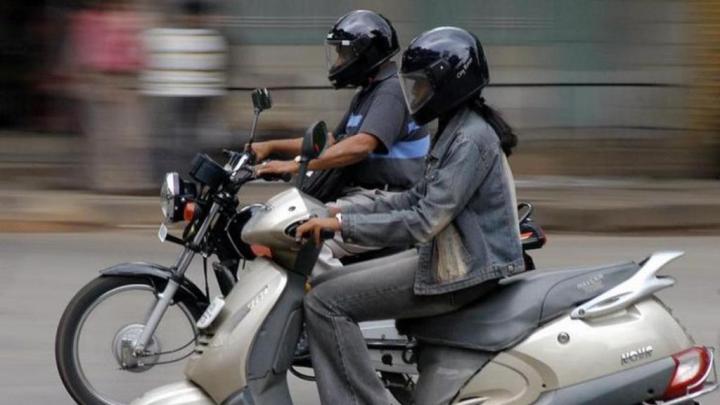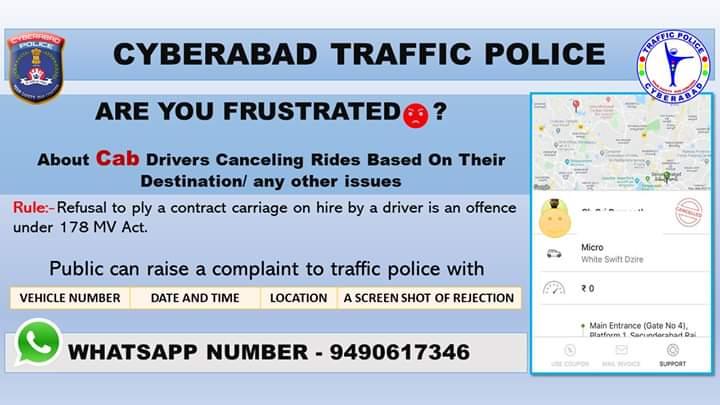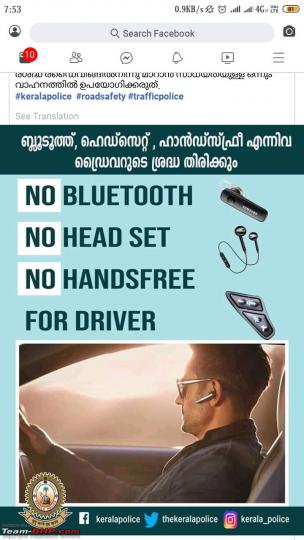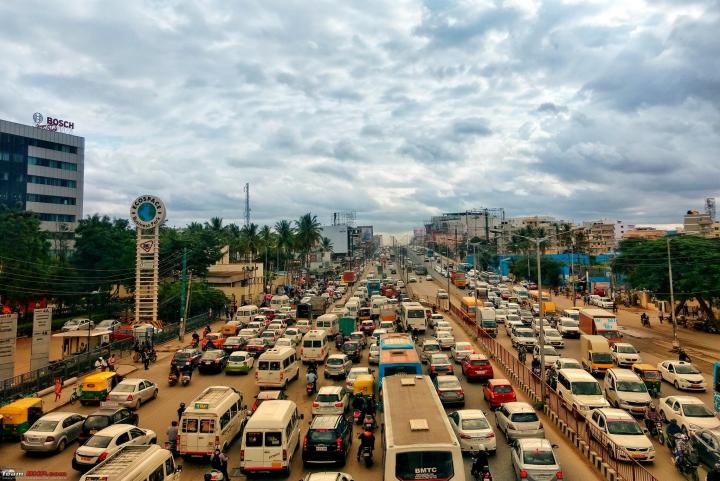News
Concerned about driving a car registered in my wife’s name
The car could get involved in an accident or a traffic/legal issue and it could cause unnecessary inconvenience and hassle to my wife.
BHPian sushantk recently shared this with other enthusiasts.
Greeting BHPians,
My car was bought in the name of my wife as the car company had significant corporate discounts for select companies and my wife is an employee with one of them. However, I drive the car all the time.
I am not very comfortable with this arrangement. There is a possibility of the car getting involved in some unfortunate accident or traffic/legal issues and usually, the car owner will have to be available in such matters. This will be an unnecessary inconvenience and hassle to my wife.
I have been thinking of transferring the ownership to me. The only drawback is that the RC will show up me as the second owner of the car and future resale value will be impacted. However, I am not much concerned about this as I am going to keep the car for a long time (7-8 years +).
Am I being paranoid here? If I am the owner (and I am the driver anyway), my wife could be fully out of the matter.
I am very much inclined to change the ownership but would like to hear your experiences and view on this matter. Thank you!
Here's what GTO had to say about the matter:
You are definitely overthinking it. All of us have driven cars registered in our immediate family member's name, whether its parents, spouse or sibling. As long as it's a family member, don't sweat over it. However, it would definitely be concerning if the car was registered in the name of a cousin, friend or previous owner (very common in the used car world).
P.S. If anything, it is your wife who should be concerned, not you. Very noble of you.
Here's what BHPian ninjatalli had to say about the matter:
To an extent, yes. My car is in my wife's name. My previous car (in my name) was used by my better half for several years (while I was overseas). No issues faced ever till date - even when we had to get insurance claims and other matters.
It's hardly a big deal given how the current industry around automobiles work. Insurance claims and the affairs are usually okay between family members - I have had (and have the knowledge of similar cases in my network) the experiences of accident(s) within the family where the owner wasn't the driver and post-accident processes went just fine.
Insurance renewals, service maintenance and all vehicle-related aspects get handled completely fine if you are able to provide the necessary documentation and some close relationship with the owner if asked.
My suggestion - Just continue with the current setup.
Here's what BHPian ani_meher had to say about the matter:
I think this is unnecessary paranoia. If the car would be in someone else's name, then it would be ok to consider the transfer of ownership. But changing it from your wife's name fearing just in case something happens by your hands is unnecessary drama. Legally too, you are in the clear for driving your wife's car.
For minor matters, the car owner need not be present. Only the driving license of the driver is sufficient. Only for severe insurance claims, the owner may come into the picture.
Here's what BHPian aargee had to say about the matter:
Cool boss! All evidence is captured right at the scene of the incident. So whoever is driving the car at the scene of any mishap is responsible for it. Yes, the owner might be called to verify if the car was driven with their consent or not, nothing more than that.
Here's what BHPian EshanS had to say about the matter:
Should not be a problem. My current setup is all in my wife's name because we were getting some amazing discounts on the Ciaz through her organization (RIL). The kind of service you get at SVC just because the owner is a woman is completely different. To give you an example, the Ciaz is from NEXA and they have 'free' pick and up and drop plus a few concierge services especially for women. My previous WagonR was on my name and I didn't even get a free coffee heck a nice place to sit during servicing. So, whenever there is a request, she makes the calls and I execute it.
Now, coming to the point where I'm driving and I get involved in a mishap or a situation where the onus is on me. In such scenarios, the driver (me) is accountable, not the owner. This has been vetted extensively as my wife is a lawyer! She would only have to be present to pass a signed statement that she wasn't driving when the situation occurred and is completely fine with the husband on the wheel.
Here's what BHPian RoadAtlas had to say about the matter:
Here in Kolkata, driving a car registered in someone else's name creates a problem during the random checks by the authorities. These are very common.
Very recently, a friend who is an emergency services worker was going to his workplace (a hospital) during the night curfew times when he was stopped in a Naka checkpoint. They checked all his documents which were fine, however, they found out that the car was registered in his father's name and demanded that he pay a fine.
So technically, according to the cops, he should have gotten a notary agreement signed by his father allowing him to drive the car. I checked the MV Act, there is nothing mentioned like this. So I suggest you make a notary agreement and talk to the local cops once before driving your wife's car. Just to be sure.
Check out BHPian comments for more insights and information.
News
Maharashtra: 2-wheelers to be sold with two helmets
According to a media report, every new two-wheeler in the state of Maharashtra will be sold with two helmets.
The report states that the Transport Commissioner of the state has issued a letter to the Society of Indian Automobile Manufacturers (SIAM) stating that it will be mandatory for OEMs to provide two BIS-standard helmets to customers at time of sale of two-wheelers in the state. Failing to do so could result in a blanket ban on the registration of two-wheelers in the entire state.
The Maharashtra High Court Nagpur Bench found that manufacturers have been violating laws and were not supplying helmets at the time of sales as prescribed by the Central Motor Vehicle Rules, 1989. The court then directed the Transport Commissioner to ensure that prescribed ISI-marked helmets were being supplied by the manufacturers.
News
Hyderabad police to crackdown on app-based cab cancellations
Thanks to Anumod Thomas for the heads-up!
Cyberabad Traffic Police has launched a new initiative urging citizens to file a complaint in case of drivers refusing to ply or over cancellation of their booked taxi.
The police have asked citizens to send the vehicle number, date and time of the incident, location as well as a screenshot of the rejection to 9490617346 via Whatsapp. The offenders would be booked under Section 178 MV Act (Refusal to ply a contract carriage on hire by driver).
An e-challan of Rs. 500 would be issued to the violator. This rule was not widely known and the public was not aware of it. The official twitter handle of the Cyberabad Traffic Police has been promoting the same.
- Tags:
- Indian
- cabs
- Police
- Motor Vehicle Act
News
Will the steep new traffic fines deter traffic offenders?
From September 1, 2019, the New Motor Vehicles (Amendment) Bill came into force with steep fines for traffic offences. Along with increasing the fines for existing offences, the bill added other offences like not providing way for emergency vehicles and offences by juveniles. It is reported that India signed the Brasilia declaration and has committed to reducing the number of road fatalities by half by 2022. The new increased fines could be a step taken to meet this target. The new fines are listed below:
- Driving without license - Rs. 5,000
- Driving despite disqualification - Rs. 10,000
- Overspeeding - Rs. 1,000
- Dangerous driving - Rs. 5,000
- Drunken driving - Rs. 10,000
- Racing - Rs. 5,000
- No seatbelt - Rs. 1,000
- Overloading two-wheeler - Rs. 2,000
- No helmet - Rs. 1,000
- Not providing way for emergency vehicles - Rs. 10,000
- Driving without insurance - Rs. 2,000
- Offences by juveniles - Rs. 25,000
However, with reports that some motorists have been fined tens of thousands of rupees, there have been mixed reactions from the public and the media regarding these fines. While some support the new fines, some are against it. Some states like Gujarat are also against the new higher fines.
On one hand, it is argued that the implementation of monetary fines act as a deterrent and helps bring down the number of violations. It is said that once the municipal corporation in Mumbai announced a fine of Rs. 10,000 for parking no-parking zones, the number of cases of illegal parking has come down drastically. With the higher fines, people will think twice about jumping a signal or riding without a helmet. Stricter implementation will also ensure that motorists follow the rules even when a traffic constable is not present. Stricter penalties are expected to ensure that people drive in a disciplined manner, which could reduce the number of road fatalities by half. Seeing other friends or family pay a hefty fine is also expected to deter motorists from violating the traffic rules. For a family which loses a loved one or which lives with a member incapacitated by an accident, their life changes forever. These high penalties could help reduce the number of accidents. Strict implementation is also required. Some motorists who violate the rules in India follow it in other countries because they know they can't get away paying a bribe.
On the other hand, some claim that such steep fines will only affect the poor, and will not deter the rich from committing violations. It is claimed that strategic placement of boards with pictures of policemen also act as a deterrent and that non-monetary fines like penalty points on the license could be more effective than monetary penalties. Some say that high fines as a punishment will not help, but we instead have to find the root cause of the problem, which is the Indian mindset and the 'chalta hai' attitude. The new fines are comparable to the fines in other countries, but developed countries have a higher per capita income than India and that the fines are not proportional to the crime. In some cases, these are traffic violations and not major crimes. Fines can be equal to more than the value of the vehicle and it may be devastating to the motorist. It is felt that the fines should have gradually been increased instead of a sudden increase as it is now. Some offences like 'dangerous driving' are not clearly defined and is left to the discretion of the traffic policemen. This could affect innocent drivers while the traffic policemen look to increase their collection. There are said to be better ways of improving road safety like automated speed management system, increased police checks, traffic management system and better infrastructure.
Its not just some motorists and media who are against the implementations of such high fines. Even some states are hesitant in implementing the new rules. Gujarat, Madhya Pradesh, Telangana, Rajasthan, Punjab, West Bengal and Delhi are said to have deferred the implementation of the act. Madhya Pradesh, Rajasthan and Punjab have said that the fines are too excessive, while Gujarat has referred the issue to the Regional Transport Office. It is reported that the Madhya Pradesh transport minister is okay with the fines for drunk driving, while the Rajasthan transport minister feels that the fines could increase corruption. The Punjab transport minister says that the fines would burden the people. In Hyderabad, the government is conducting an awareness campaign to inform the motorists of the new penalties and West Bengal has only partially implemented the act. While it is reported that Delhi has not yet implemented the new rules, the number of traffic challans issued is said to have reduced by 70%. Karnataka is also said to have reduced the traffic fines.
- Tags:
- Indian
- Safety
- Motor Vehicle Act
- Fines
News
Using Bluetooth, handsfree for phone illegal, Kerala cops say
According to a Kerala Police Facebook post, talking on a mobile phone using Bluetooth, headset or any other handsfree device is illegal and a punishable offence.
The post also says that use of music systems in vehicles like buses, taxis, auto-rickshaws and private cars on contract charge is not forbidden. But, it should not cause a distraction to the driver.
As per Rule 21 (6) (25) of the Central Motor Vehicles Rules 1989, using a mobile phone while driving is illegal and a driver shall not answer a call while driving as it is likely to disturb the concentration of the driver. However, it does not categorically mention Bluetooth and handsfree devices.
News
Rumour: Motor Vehicles (Amendment) Bill to be approved soon
According to a media report, the government is likely to approve the Motor Vehicles (Amendment) Bill soon. The bill has already been passed in the Lok Sabha and is pending in the Rajya Sabha.
It has been reported that the compensation for hit-and-run fatalities is likely to be increased from Rs. 25,000 to Rs. 2 lakh or more.
The minimum fine for drunk driving could be increased from Rs. 2,000 to Rs. 10,000 and for rash driving, the fine could go up from Rs. 1,000 to Rs. 5,000. Driving without a license could attract a minimum fine of Rs. 5,000. The fine for over-speeding could be between Rs. 1,000-2,000 and seat belt violation could attract a fine of Rs. 1,000. Using a mobile phone while driving could attract a fine of Rs. 5,000.
In case of traffic violations by minors, the guardian / owner of the vehicle would be held responsible, unless proved that the act was committed without their knowledge or they had tried to prevent it. The minors would be tried under the Juvenile Justice Act and the registration of the vehicle would be cancelled.
The bill could also bring into its purview various insurance agencies as well as taxi aggregators and create a fund to provide compulsory insurance cover to all road users. The new rules also seek to put the onus of accidents due to faulty design or construction and poor maintenance of roads on civic agencies, contractors and consultants.
The cap on 3rd-party liability is also expected to be removed. In 2016, the Bill put a cap on the maximum liability at Rs. 10 lakh for death and Rs. 5 lakh for serious injury. Additionally, the Act asks for vehicle recalls in case the components or engines do not meet the specified standards. Car manufacturers could also be fined Rs. 500 crore for sub-standard components or engines.
Source: Economic Times
- Tags:
- Indian
- Motor Vehicle Act
- Fines














